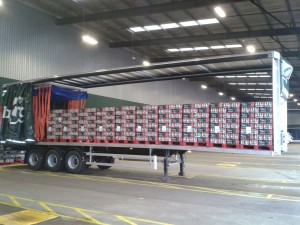CIFAS and Dionach: Protecting your online information is easy
CIFAS – the UK’s Fraud Prevention Service (in collaboration with Dionach, the leading independent global Information Security company) today releases Protecting your online information: a quick and easy guide on how best to protect yourself and your data when online. Click here to download a copy.
Providing examples of best practice, combined with easy to understand safety tips, Protecting your online information is being released as part of the push for increased consumer awareness and education in online safety.
The guide is also released at the start of the Cyber Streetwise campaign – part of the Government’s National Cyber Security Programme (please visit www.cyberstreetwise.com).This initiative is designed to help people to be a bit more ‘streetwise’ when online. With many people not taking all of the easy steps that they could to stay safe online (such as making sure that anti-virus software is up to date and switched on, not using simple passwords etc.), life for online criminals and fraudsters becomes much easier.
Understanding the basics
Peter Wilson, Director at the National Fraud Authority, notes that: “Many people might think that they’re very security aware, but some of the online behaviour tells a different story. For example, people might use only one password for all accounts, or disable computer firewalls, even though they would never dream of using only one key for all locks or not closing doors and windows when leaving their car or house. This is at the heart of the Cyber Streetwise campaign: trying to mirror – in the virtual world – some of the safety conscious behaviours we use in the physical world.”
Simon Dukes, CIFAS Chief Executive, comments: “In an increasingly technology driven age, it is easy to forget that online safety can be a very simple thing. Making sure that your computer is protected, not being too trusting and ensuring that you look after your log-in details: these are just three of the simple steps that we can all take. These will go a very long way to helping people to protect themselves online. The internet has revolutionised the way that all sections of society interact: by upping our individual efforts to protect ourselves, we make it far more difficult for the devious and malicious elements of society to rip off and dupe us. As individuals, if we all do our bit to keep ourselves safe, then organisations and institutions will do the same and we can – together – stop online criminals from walking off with our money.”


